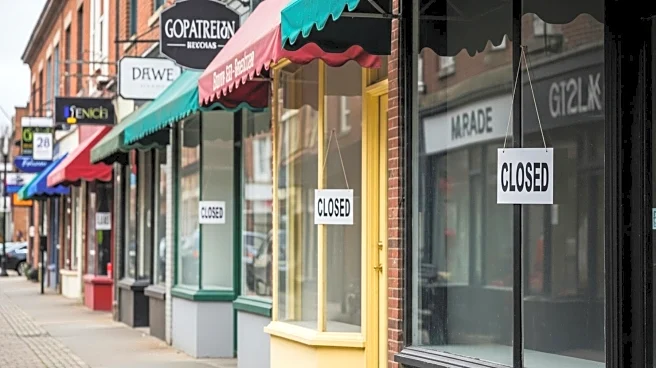What's Happening?
As the holiday season approaches, smaller retailers in the U.S. are facing significant challenges due to a combination of economic factors. The federal government shutdown, tariffs, inflation, and signs
of economic weakness are creating a precarious environment for these businesses, which often lack the financial resilience of larger chains. According to Jacob Bennett, co-founder and CEO of Crux Analytics, small businesses are entering their busiest period with unprecedented uncertainty. The Fiserv Small Business Index indicates a drop in retail sales, adjusted for inflation, and disruptions in loan programs due to the shutdown are exacerbating inventory management issues.
Why It's Important?
The difficulties faced by smaller retailers highlight the broader economic challenges impacting the U.S. retail sector. These businesses are crucial for local economies, providing personalized services and community connections that larger brands struggle to replicate. The current economic climate threatens their survival, potentially leading to closures and job losses. The situation underscores the need for supportive policies and innovative solutions to help small businesses navigate these challenges, ensuring their continued contribution to the economy and local communities.
What's Next?
Small retailers may need to adopt new strategies to cope with the economic pressures, such as automating tasks to improve efficiency and focusing on customer satisfaction to maintain loyalty. The ongoing economic uncertainty may prompt policymakers to consider measures that support small businesses, such as easing tariffs or providing financial assistance. Additionally, the holiday season will be a critical period for these retailers, as they attempt to balance inventory management with consumer demand amidst fluctuating economic conditions.









